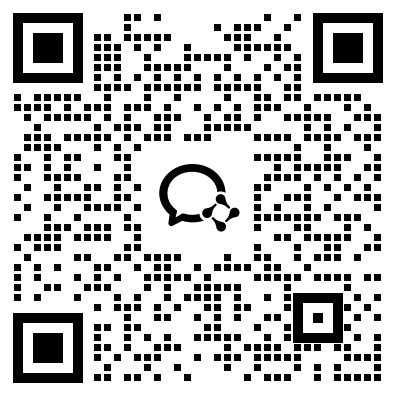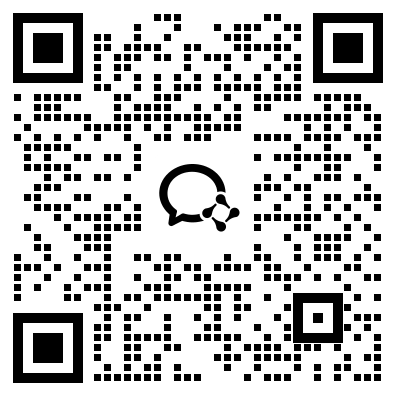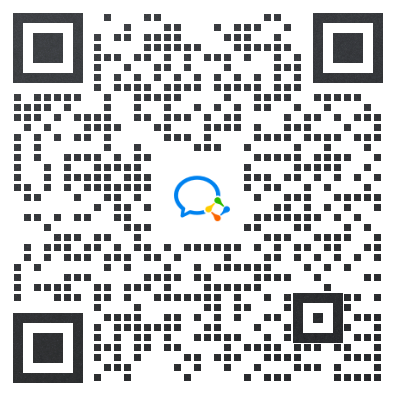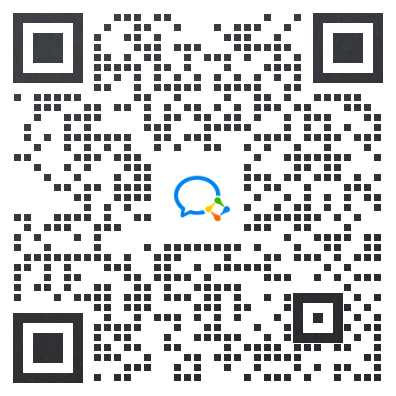特惠-26考研冲刺
特惠-27考研课
双证-在职硕士
免联考-同等学力
复试分数线
26复试全面指导
模拟复试面试
26考研-全套真题
26考研估分
保研-路线图
27考研-智能择校
27考研-英语测评
27考研-新大纲对比
热门-计算机择校

扫码加入训练营
牢记核心词
学习得礼盒
33.【题干】Paul Arnold is concerned that small acquisitions might_____.
【选项】
A.weaken big tech companies
B.worsen market competition
C.harm the national economy
D.discourage start-up investors
【答案】C
34.【题干】The US Federal Trade Commission intend to____.
【选项】
A.examine small acquisitions
B.limit Big Tech's expansion
C.supervise start-ups operations
D.encourage research collaboration
【答案】A
35.【题干】For the five biggest tech companies, their small acquisition have____.
【选项】
A.brought little financial pressure
B.raised few management challenges
C.set an example for future deals
D.generate considerable profits
【答案】A
We're fairly good at judging people based on first impression, thin slices of experience ranging from a glimpse of a photo to five-minute interaction, and deliberation can be not only extraneous but intrusive. In one study of the ability she dubbed "thin slicing," the late psychologist Nalini Ambady asked participants to watch silent 10-second video clips of professors and to rate the instructor's overall effectiveness. Their ratings correlated strongly with students' end-of-semester ratings. Another set of participants had count backward from 1, 000 by nines as they watched the clips, occupying their conscious working memory. Their ratings were just as accurate, demonstrating the intuitive nature of the social processing.
Critically, another group was asked to spend a minute writing down reasons for their judgment, before giving the rating. Accuracy dropped dramatically. Ambady suspected that deliberation focused them on vivid but misleading cues, such as certain gestures or utterances, rather than letting the complex interplay of subtle
signals form a holistic impression. She found similar interference when participants watched 15-second clips of pairs of people and judged whether they were strangers, friends, or dating partners. Other research shows we're better at detecting deception an sexual orientation from thin slices when we rely on intuition instead of reflection. "It's as if you're driving a stick shift," says Judith Hall, a psychologist at Northeastern University. "and if you start thinking about it too much, you can't remember what you're doing. But if you go on automatic pilot, you're fine. Much of our social life is like that."
Thinking too much can also harm our ability to form preferences. College students' ratings of strawberry jams and college course aligned better with experts' opinions when the students weren't asked to analyze their rationale. And people made car-buying decisions that were both objectively better and more personally satisfying when asked to focus on their feelings rather than on details, but only if the decision was complex-when they had a lot of information to process.
Intuition's special powers are unleashed only in certain circumstances. In one study participants completed a battery of eight tasks, including four that tapped reflective thinking (discerning rule comprehending vocabulary) and four that tapped intuition an creativity (generating new products or figures of speech). Then the rated the degree to which they had used intuition ("gut feelings," "hunches," "my heart").Use of their gut hurt their performance on the first four tasks, as expected, and helped them on the rest. Sometimes the heart is smarter than the head.
36.【题干】Nalini Ambaby's study deals with_____
【选项】
A.instructor student interaction
B.the power of people' s memory
C.the reliability of first impressions
D.People's ability to influence others
【答案】C
37.【题干】In Ambaby's study, rating accuracy dropped when participants_____
【选项】
A.gave the rating in limited time
B.focused on specific details
C.watched shorter video clips
D.discussed with on another
【答案】B
Section II Reading Comprehension Part B
Directions:
Read the following text and answer the questions by choosing the most suitable subheading from the list A-G for each of the numbered paragraphs (41-45).There are two extra subheadings. Mark your answers on the ANSWER SHEET. (10 points)
How to Disagree with Someone More Powerful than You
Your boss proposes a new initiative you think won't work. Your senior colleague outlines a project timeline you think is unrealistic. What do you say when you disagree with someone who has more power than you do? How do you decide whether it's worth speaking up? And if you do, what exactly should you say? Here's how to disagree with someone more powerful than you.
_____(41)
You may decide it's best to hold off on voicing your opinion. Maybe you haven t finished thinking the problem through, the whole discussion was a surprise to you, or you want to get a clearer sense of what the group thinks. If you think other people are going to disagree too, you might want to gather your army first. People can contribute experience or information to your think—all the things that would make the disagreement stronger or more valid. It's also a good idea to delay the conversation if you're in a meeting or other public space. Discussing the issue in private will make the powerful person feel less threatened.
_____(42)
Before you share your thoughts, think about what the powerful person cares about— it may be "the credibility of their team on getting a project done on time," says Grenny. You're more likely to be heard if you can connect your disagreement to a "higher purpose". When you do speak up, don't assume the link will be clear. You 'll want to state it overtly, contextualizing your statements so that you're seen not as a disagreeable underling but as a colleague who's trying to advance a shared goal. The discussion will then become more like a chess game than a boxing match.
_____(43)
This step may sound overly deferential, but it's a smart way to give the powerful person psychological safety and control. You can say something like, "I know we seem to be moving toward a first-quarter commitment here. I have reasons to think that won't work. I'd like to lay out my reasoning. Would that be OK?" This gives the person a choice, allowing them to verbally opt in. And, assuming they say yes, it will make you feel more confident about voicing your disagreement.
_____(44)
You might feel your heart racing or your face turning red, but do whatever you can to remain neutral in both your words and actions. When your body language communicates reluctance or anxiety, it undercuts the message. It sends a mixed message, and your counterpart gets to choose what to read. Deep breaths can help, as can speaking more slowly and deliberately. When we feel panicky we tend to talk louder and faster. Simply slowing the pace and talking in an even tone helps the other person calm down and does the same for you. It also makes you seem confident, even if you aren't.
_____(45)
Emphasize that you're offering your opinion, not gospel truth. It may be a well-informed, well-researched opinion, but it's still an opinion, my talk tentatively and slightly understate your confidence. Instead of saying something like "If we set an end-of-quarter deadline, we will never make it," say, "This is just my opinion, but I don't see how we will make that deadline." Having asserted your perfectly willing to talk-and may even be flattered to receive your attention.
41.【题干】41._____.
【选项】
A.Stay calm
B.Stay humble
C.Don't make judgments
D.Be realistic about the risks
E.Decide whether to wait
F.Ask permission to disagree
G.Identify a shared goal
【答案】E
42.【题干】42._____.
【选项】
A.Stay calm
B.Stay humble
C.Don't make judgments
D.Be realistic about the risks
E.Decide whether to wait
F.Ask permission to disagree
G.Identify a shared goal
【答案】G
43.【题干】43._____.
【选项】
A.Stay calm
B.Stay humble
C.Don't make judgments
D.Be realistic about the risks
E.Decide whether to wait
F.Ask permission to disagree
G.Identify a shared goal
【答案】F
44.【题干】44._____.
【选项】
A.Stay calm
B.Stay humble
C.Don't make judgments
D.Be realistic about the risks
E.Decide whether to wait
F.Ask permission to disagree
G.Identify a shared goal
【答案】A
45.【题干】45._____.
【选项】
A.Stay calm
B.Stay humble
C.Don't make judgments
D.Be realistic about the risks
E.Decide whether to wait
F.Ask permission to disagree
G.Identify a shared goal
【答案】B
以上就是为考研人分享的:“历年考研英语二真题解析:2021年英语二阅读理解考试真题及答案”希望能为大家带来帮助,预祝大家考研成功。更多英语二真题可以关注新东方在线考研频道。
【英语二真题】资料这里有↑↑↑
本文关键字: 英语二真题

 资料下载
资料下载
2014年-2025年考研历年真题汇总
发布时间:2024-04-25扫码添加【考研班主任】
即可领取资料包
考研大纲PDF电子版下载-历年(附解析)
发布时间:2024-04-25扫码添加【考研班主任】
即可领取资料包
2026年考研政数英备考资料zip压缩包
发布时间:2024-04-25扫码添加【考研班主任】
即可领取资料包
考研英语大纲词汇5500打印版(基础必备)
发布时间:2024-04-25扫码添加【考研班主任】
即可领取资料包
新东方在线考试模拟题【12套】
发布时间:2024-04-25扫码添加【考研班主任】
即可领取资料包
2026年考研专业课知识点总结
发布时间:2024-04-25扫码添加【考研班主任】
即可领取资料包
新东方考研资料下载地址
发布时间:2023-05-17新东方在线考研资料合集
下载方式:微信扫码,获取网盘链接

目录:
1.2013-2023年近10年政数英真题及解析PDF版(新东方)
2.2013-2023年专业课考试历年真题及解析PDF版
3.24考研复习备考资料大合集:大纲+备考资料+词汇书+考前押题+自命题
资料介绍:
1.2013-2023年近10年政数英真题及解析PDF版(新东方)
 、
、
2.2013-2023年专业课考试历年真题及解析PDF版


3.24考研复习备考资料大合集

3.24考研复习备考资料:考研大纲

3.24考研复习备考资料:政数英备考资料+自命题真题

------------------
考研备考过程中,尤其是专业课部分,参考往年的考试真题,对于我们的复习有更好的帮助。北京大学考研真题资料都有哪些?小编为大家进行了汇总。
北京大学考研真题资料-公共课

北京大学考研真题资料-专业课


以上就是关于“北京大学考研真题资料下载(历年汇总)”的整理,更多考研资料下载,请关注微信获取下载地址。
2024考研公共课必背知识点汇总
发布时间:2023-01-03扫码添加【考研班主任】
即可领取资料包
2013-2023考研历年真题汇总
发布时间:2023-01-03扫码添加【考研班主任】
即可领取资料包
考研英语大纲词汇(PDF可打印)
发布时间:2023-01-03扫码添加【考研班主任】
即可领取资料包
2024考研专业课知识点总结
发布时间:2023-01-03扫码添加【考研班主任】
即可领取资料包
2023考研政治 内部押题 PDF
发布时间:2022-11-16扫码添加【考研班主任】
即可领取资料包
徐涛:23考研预测六套卷
发布时间:2022-11-16扫码添加【考研班主任】
即可领取资料包
考研政数英冲刺资料最新整理
发布时间:2022-11-16扫码添加【考研班主任】
即可领取资料包
23考研答题卡模板打印版
发布时间:2022-11-16扫码添加【考研班主任】
即可领取资料包
2023考研大纲词汇5500PDF电子版
发布时间:2022-07-28扫码添加【考研班主任】
即可领取资料包
考研历年真题(公共课+专业课)
发布时间:2022-07-28扫码添加【考研班主任】
即可领取资料包
考研英语阅读100篇附解析及答案
发布时间:2022-01-07扫码添加【考研班主任】
即可领取资料包
新东方考研学霸笔记整理(打印版)
发布时间:2022-01-07扫码添加【考研班主任】
即可领取资料包
2001-2021年考研英语真题答案(可打印版)
发布时间:2022-01-07扫码添加【考研班主任】
即可领取资料包
考研英语词汇5500(完整版下载)
发布时间:2022-01-07扫码添加【考研班主任】
即可领取资料包
2022考研政审表模板精选10套
发布时间:2022-01-07扫码添加【考研班主任】
即可领取资料包
历年考研真题及答案 下载
发布时间:2021-12-09扫码添加【考研班主任】
即可领取资料包
考研政审表模板汇总
发布时间:2020-06-17扫码添加【考研班主任】
即可领取资料包
近5年考研英语真题汇总
发布时间:2020-06-17扫码添加【考研班主任】
即可领取资料包
考研英语大纲词汇5500
发布时间:2020-06-17扫码添加【考研班主任】
即可领取资料包
2022考研12大学科专业排名汇总
发布时间:2019-11-21扫码添加【考研班主任】
即可领取资料包
2023考研政治复习备考资料【珍藏版】
发布时间:2019-11-21扫码添加【考研班主任】
即可领取资料包
考研英语万能模板+必备词汇+范文
发布时间:2019-11-21扫码添加【考研班主任】
即可领取资料包
考研数学一、二、三历年真题整理
发布时间:2019-11-21扫码添加【考研班主任】
即可领取资料包

添加班主任领资料
添加考研班主任
免费领取考研历年真题等复习干货资料

 推荐阅读
推荐阅读
2025年考研初试结束后,新东方在线为大家整理了:2025年考研英语二真题及答案解析(完整版),供大家参考,同时也为大家提供了电子版文
2025年考研初试结束后,新东方在线为大家整理了:2025年考研英语二真题及答案解析(电子版下载),供大家参考,同时也为大家提供了电子
2025年考研初试结束后,新东方在线为大家整理了:2025年考研英语二新题型真题答案,供大家参考,同时也为大家提供了电子版文档直接下载
2025年考研初试结束后,新东方在线为大家整理了:2025年考研英语二完形填空真题答案,供大家参考,同时也为大家提供了电子版文档直接下
2025年考研初试结束后,新东方在线为大家整理了:2025年考研英语二翻译真题答案,供大家参考,同时也为大家提供了电子版文档直接下载,

 资料下载
资料下载
扫码添加【考研班主任】
即可领取资料包
扫码添加【考研班主任】
即可领取资料包
扫码添加【考研班主任】
即可领取资料包
扫码添加【考研班主任】
即可领取资料包
扫码添加【考研班主任】
即可领取资料包
扫码添加【考研班主任】
即可领取资料包
新东方在线考研资料合集
下载方式:微信扫码,获取网盘链接

目录:
1.2013-2023年近10年政数英真题及解析PDF版(新东方)
2.2013-2023年专业课考试历年真题及解析PDF版
3.24考研复习备考资料大合集:大纲+备考资料+词汇书+考前押题+自命题
资料介绍:
1.2013-2023年近10年政数英真题及解析PDF版(新东方)
 、
、
2.2013-2023年专业课考试历年真题及解析PDF版


3.24考研复习备考资料大合集

3.24考研复习备考资料:考研大纲

3.24考研复习备考资料:政数英备考资料+自命题真题

------------------
考研备考过程中,尤其是专业课部分,参考往年的考试真题,对于我们的复习有更好的帮助。北京大学考研真题资料都有哪些?小编为大家进行了汇总。
北京大学考研真题资料-公共课

北京大学考研真题资料-专业课


以上就是关于“北京大学考研真题资料下载(历年汇总)”的整理,更多考研资料下载,请关注微信获取下载地址。
扫码添加【考研班主任】
即可领取资料包
扫码添加【考研班主任】
即可领取资料包
扫码添加【考研班主任】
即可领取资料包
扫码添加【考研班主任】
即可领取资料包
扫码添加【考研班主任】
即可领取资料包
扫码添加【考研班主任】
即可领取资料包
扫码添加【考研班主任】
即可领取资料包
扫码添加【考研班主任】
即可领取资料包
扫码添加【考研班主任】
即可领取资料包
扫码添加【考研班主任】
即可领取资料包
扫码添加【考研班主任】
即可领取资料包
扫码添加【考研班主任】
即可领取资料包
扫码添加【考研班主任】
即可领取资料包
扫码添加【考研班主任】
即可领取资料包
扫码添加【考研班主任】
即可领取资料包
扫码添加【考研班主任】
即可领取资料包
扫码添加【考研班主任】
即可领取资料包
扫码添加【考研班主任】
即可领取资料包
扫码添加【考研班主任】
即可领取资料包
扫码添加【考研班主任】
即可领取资料包
扫码添加【考研班主任】
即可领取资料包
扫码添加【考研班主任】
即可领取资料包
扫码添加【考研班主任】
即可领取资料包

 阅读排行榜
阅读排行榜
 相关内容
相关内容